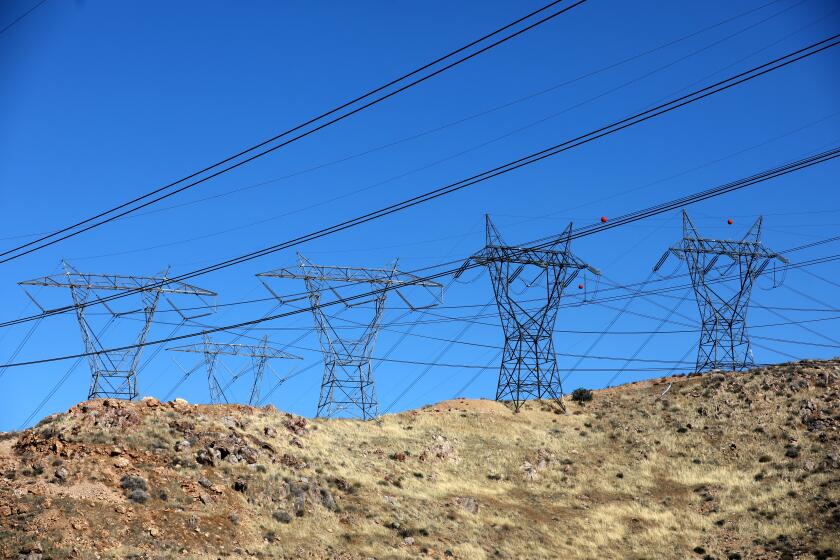Demonstrators arrested at UCLA are finally getting their phones back, but it might not be easy

- Share via
For nearly a year, the UCLA Police Department has kept the cellphones of 40 UCLA students they arrested during last year’s mass demonstrations over the war in Gaza.
Without their phones students faced extreme hardship, according to attorneys affiliated with the National Lawyers Guild. At least one student lost her job when her employer couldn’t reach her, a student journalist with the Daily Bruin said it made reporting for the newspaper difficult, and one student missed a shift at an internship. Some students had trouble staying in touch with family, attorneys said.
On Monday, the university’s police department said it would give phones back to the students.
The Los Angeles city attorney’s office will not file criminal charges against the vast majority of protesters arrested at UCLA and USC during last year’s mass demonstrations over the war in Gaza.
Acting Police Chief Scott Scheffler wrote in an email to The Times that the decision stemmed from Los Angeles City Atty. Hydee Fieldstein Soto’s announcement last week that she was not filing charges against most of the UCLA and USC students arrested in April and May 2024.
“As of this morning the phones are no longer being held as evidence,” Scheffler wrote. “Individuals who have not yet picked up their phones will be notified and can make an appointment with our Property Unit to do so.”
But students will only have two weeks from the date they receive written notification from the department to retrieve their phones before they are destroyed, said Cynthia Anderson-Barker, an attorney with the lawyer’s guild.
It’s a timeline she says is unfair for the many students who no longer live in Los Angeles. She’s requested that an attorney be permitted to collect the phones on behalf of the students.
She said students would need to bring identification and show proof they own the phone. They will also require a notarized letter if someone else wants to pick up the device.
The police department keeps more than 3,000 items of evidence, found property and property being held for safekeeping, according to the department’s website. Generally, items stored as evidence are held until a case is completed.
Sabrina Darwish, a criminal defense attorney based in Santa Ana, said she and Anderson-Barker began to request the phones from the police department after the May 6 arrests of more than 40 students inside a parking structure at UCLA.
Although the case remained open, no criminal charges were filed against the students.
UCLA suspended two pro-Palestinian campus groups after a protest at a UC regent’s home, which was vandalized. Chancellor Julio Frenk said students violated conduct rules. The groups said they were undeterred.
In July, Darwish filed a motion in Los Angeles Superior Court to get the department to return the property. But the motion was denied because of a search warrant university police had obtained, alleging the phones were used to commit a felony and they were part of an ongoing investigation.
Two months after the court hearing, Anderson-Barker wrote to Feldstein Soto, copying Los Angeles Mayor Karen Bass and UCLA Interim Chancellor Darnell Hunt asking that the phones be returned to the students. Feldstein Soto’s office responded four days later, stating that the decision to release the property fell on the UCLA Police Department.
Hieu Vu, a criminal defense attorney in Orange County, said it’s common for law enforcement agencies to keep evidence key to a criminal case in some instances for years.
“While a search warrant can temporarily justify holding property, it does not allow for indefinite possession,” he said. “A yearlong hold after a search warrant sounds unusually long.”
The attorneys with the lawyers’ guild said trying to get phones back to the students has been frustrating.
“We’ve never received so much pushback in both of our careers,” Darwish said. “They’ve made it unnecessarily difficult.”
More to Read
Sign up for Essential California
The most important California stories and recommendations in your inbox every morning.
You may occasionally receive promotional content from the Los Angeles Times.













